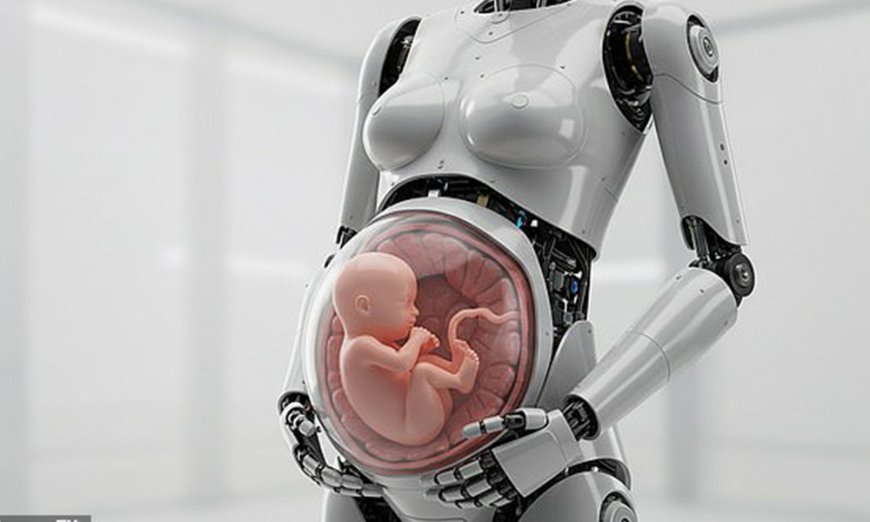China is preparing for a groundbreaking event as the world’s first robot is set to give birth to a human baby
However, the exact process of how the egg and sperm are fertilized remains unclear.

Scientists in China claim the world’s first humanoid robot surrogate is set to give birth to a live baby.
Researchers are developing technology designed to replicate pregnancy from conception to delivery, with the fetus growing inside an artificial womb and receiving nutrients through a tube.
According to Dr. Zhang Qifeng, founder of Kaiwa Technology in Guangzhou and a PhD graduate from Nanyang Technological University in Singapore, the system is already at a “mature stage.” He explained, “The next step is to implant it into the robot’s abdomen, enabling real human interaction with the surrogate so the fetus can grow inside.”
A prototype humanoid is expected to be marketed as early as next year for around £10,000 (100,000 yuan). Reports in Chinese media suggest the robot is designed to replicate every stage of pregnancy, from fertilisation to childbirth.
However, the exact method of egg and sperm fertilisation has not yet been disclosed. Nor is it clear how the embryo will be implanted inside the artificial womb. During gestation, the baby would be sustained in a womb-like environment filled with synthetic amniotic fluid.
Dr. Zhang noted that the idea is not entirely new—scientists previously managed to keep premature lambs alive for weeks inside an experimental “biobag.”
The innovation has already sparked legal and ethical debates. Dr. Zhang revealed discussions are underway with Guangdong provincial authorities on drafting policy and legislation. If successful, the breakthrough could reshape medical science and redefine family and fertility, while also addressing China’s rising infertility rate, which has grown from 11.9% in 2007 to 18% in 2020.
Ethical concerns
Critics have condemned the development as “problematic,” warning that depriving a fetus of maternal connection is unethical and inhumane. Experts cited by Chinese outlet The Standard have also raised doubts, stressing that complex biological processes such as maternal hormone secretion cannot be replicated artificially.
The radical feminist writer Andrea Dworkin previously denounced artificial wombs, fearing they could signal “the end of women.” Similarly, researchers at the Children’s Hospital of Philadelphia warned in 2022 that such technology could “pathologise” pregnancy.
Still, some argue that artificial wombs may free women from the risks and burdens of pregnancy, offering a revolutionary alternative in reproductive health.
What's Your Reaction?

















































































